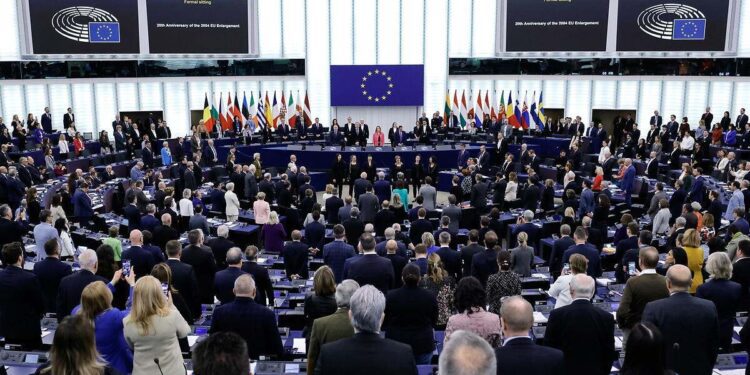The European Parliament has approved the Zero Emissions Industries law this Thursday (April 25), the measure that the community Executive imposed the past year to address the package of subsidies that the United States set for its clean technology industry and the subsidies that Beijing has given to its industry. A rule that aims for the bloc to produce 40% of the clean technologies it will need by 2030.
With 361 votes in favor, 121 against, and 45 abstentions, the MEPs have definitively given the green light to a rule with which the bloc intends to increase its productive capacity by 2030. A plan that also seeks to secure 15% of the global market in green technologies. As indicated a year ago by the Commissioner for Internal Market, Thierry Breton the EU needs 600 billion euros between now and 2030.
The regulation aims to increase production in eight green technologies: solar, wind, batteries, heat pumps, geothermal, electrolyzers and fuel cells, biogas and biomethane, as well as other technologies for carbon capture. This list extends to technologies that contribute to emissions reductions and includes advanced technologies for nuclear energy production with little waste, small modular reactors, and fuels.
In addition, the regulation will reduce administrative burdens, accelerate and simplify the processes of granting renewable permits and establish maximum timeframes for project authorization. It also sets out a series of sustainability criteria that national aid schemes must meet for citizens to install solar panels and heat pumps. For final approval, the Twenty-Seven still need to endorse the regulation, a step for which no discussion is expected.
Public procurement procedures and renewable auctions will be subject to the same criteria set by Brussels. Countries must apply environmental sustainability criteria and contribute to energy integration in a minimum of 30% of the volume auctioned that year or a maximum of 6 gigawatts auctioned per year per country.
Brussels’ proposal includes boosting projects for industrial installations, which will be of common interest to the entire EU. These initiatives will have to be approved within 9 months for plants producing less than 1 GW and within one year for those with higher production capacities.
The legislation will promote funding from national revenues of the Emission Rights Trading Scheme for most strategic projects through the Strategic Technologies Platform for Europe (STEP). Furthermore, it represents a step towards a European sovereignty fund, an idea put forward last year by the President of the European Commission, Ursula von der Leyen, which was not finalized.


